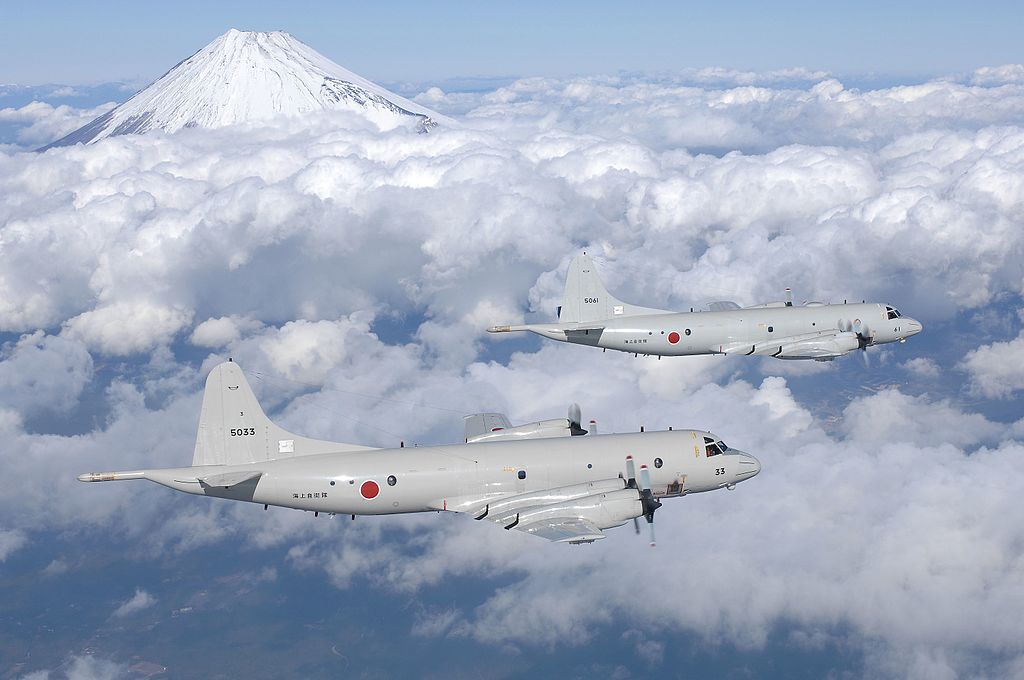
Federated States of Micronesian President David Panuelo.
“I believe that our values are presently being used against us. One of the reasons that China’s political warfare is successful in so many arenas is that we are bribed to be complicit, bribed to be silent.”
According to the excerpted article from the Asia-focused outlet, The Diplomat, outgoing Micronesian President David Panuelo recently warned of Beijing’s efforts to shape his country’s external operational environment via “political warfare”[i]and “gray zone operations.” To mitigate the China’s influence, Panuelo suggested that Micronesia switch diplomatic allegiance from China to Taiwan in exchange for Taiwan providing Micronesia with $50 million. The 13-page warning[ii] letter detailed Chinese covert, coercive, and corrupting influence activities in Micronesia, including bribery, spying, and other external interference.
Panuelo provided examples stating a former Chinese ambassador had tried to bribe Vice President Palik with an envelope of cash to be seated in a place of prominence at a Chinese Embassy Banquet. When Palik refused, the Chinese ambassador said something to the effect of “you could be President someday.” At the July 2023 Pacific Islands Forum, Paneulo relayed that he was followed by a People’s Liberation Army intelligence officer stationed at the Chinese Embassy in Fiji. The letter also recounts Chinese efforts to manufacture international support for China at the China-Pacific Island Countries Political Dialogue by having a Micronesian private citizen represent the Micronesia when the Micronesian government declined to attend a meeting of the regional multilateral forum. In response to these claims, China’s Ministry of Foreign Affairs spokesperson derided Panuelo’s assertions as “smear[s] and accusations…completely inconsistent with the facts,” adding Beijing has “always respected Micronesia’s development path that it has chosen in light of its own national conditions and has supported the Micronesian side in safeguarding its independence.” While it remains to be seen if Micronesia will pursue the diplomatic shift Panuelo proposed after he steps down from office, Taiwanese Foreign Minister Joseph Wu has expressed concerns over the burden such “dollar diplomacy” would put on Taiwan.[iii]
Source:
“Micronesia’s President Writes Bombshell Letter on China’s ‘Political Warfare’,” The Diplomat (international current-affairs magazine for the Asia-Pacific region), 10 March 2023. https://thediplomat.com/2023/03/micronesias-president-writes-bombshell-letter-on-chinas-political-warfare/
It is on this basis that Political Warfare and Grey Zone activity occur within our borders; China is seeking to ensure that, in the event of a war in our Blue Pacific Continent between themselves and Taiwan, that the FSM is, at best, aligned with the PRC (China) instead of the United States and, at worst, that the FSM chooses to ‘abstain’ altogether.
We understand that Mr. Wu [Beijing’s choice for ambassador to FSM] would, upon his arrival, be given the mission of preparing the FSM to shift away from its partnerships with traditional allies such as the U.S., Japan, and Australia. We know that Mr. Wu would expand PRC security activity, awareness, and interest in the FSM … I declined the Ambassador-designate his position … they’re simply awaiting the new President to take power so Mr. Wu can become the Ambassador of China to the FSM.
You can imagine my surprise when I was followed this past July in Fiji during the Pacific Islands Forum by two Chinese men; my further surprise when it was determined that they worked for the Chinese Embassy in Suva; my even further surprise when it was discovered that one of them was a PLA intelligence officer; and my continued surprise when I learned that I had multiple Cabinet and staff who had met him before, and in the FSM. To be clear: I have had direct threats against my personal safety from PRC officials acting in an official capacity.
Ambassador Qian was formerly the ambassador to Fiji – and by extension was the one responsible for authorizing the two Chinese to follow me in Suva. ,,, Ambassador Qian also would have been present during the 2nd China-PICS Political Dialogue. That itself is noteworthy insofar as that was the public meeting where the FSM Government found itself represented not by myself or a Cabinet member or even a member of our Foreign Service – indeed not by anyone in our Government at all but, rather, a private citizen named Mr. Duhlen Soumwei. I said to the PRC that we would not have formal representation at the meeting, and the PRC went to the extent of taking one of our citizens and then publicly having that citizen formally represent us. To say it again: China has established a precedent of taking out private citizens in multilateral meetings to formally represent our country without our Government’s awareness or approval thereof.
In November, 2021 – after the Secretary of Health and the Secretary of Foreign Affairs and myself had changed cellphone numbers due to incessant calls from Ambassador Huang – the FSM signed an agreement that we accept the Chinese vaccines. We included various stipulations, such as that they were to be used only for citizens of China in the FSM; but that wasn’t what China wanted. What China wanted was for the FSM to be on the list of countries that they could publicly promote as having accepted their vaccines. China got exactly what it wanted.
Senior officials and elected officials across the whole of our National and State Governments receive offers of gifts as a means to curry favor. The practical impact of this is that some senior officials and elected officials take actions that are contrary to the FSM‘s national interest, but are consistent with the PRC‘s national interests.
This isn’t rare. This happens all the time, and to most of us – not just some of us. It is at this point that I relay, simply as a point of information, that 39 out of 50 members of Parliament in Solomon Islands received payments from China prior to their vote on postponing elections that were otherwise scheduled for this year. Have you personally received a bribe from the PRC? If the answer is “no,” you are in the minority.When we sent our own patrol boats to our own Exclusive Economic Zone to check on PRC research vessel activity, the PRC sent a warning for us to stay away.
Notes:
[i] Political warfare [政治战] seeks to mobilize and utilize the spectrum of strategic resources (party, state, military, commercial, and civilian) to influence the conduct, policies, motives, and perceptions of foreign actors in a manner favorable to the strategic objectives of the Chinese Communist Party (CCP). Political warfare differs from public diplomacy in its lack of transparency and calculated manipulation of a target to influence its norms, policies, and strategies through inducive and coercive methods of persuasion. For a more detailed exploration of the CCP’s political warfare and political work concepts, see: Mark Stokes and Russell Hsiao, “The People’s Liberation Army General Political Department: Political Warfare with Chinese Characteristics,” Project 2049 Institute, 14 October 2013, https://project2049.net/wp-content/uploads/2018/04/P2049_Stokes_Hsiao_PLA_General_Political_Department_Liaison_101413.pdf and for more on the PLA’s conception of political warfare, see: Peter Mattis, “China’s ‘Three Warfares’ in Perspective,” War on the Rocks, 30 January 2018. https://warontherocks.com/2018/01/chinas-three-warfares-perspective/
[ii] For the full report see: LinkedIn Post, 10 March 2023. https://www.linkedin.com/posts/cleopaskal_panuelo-letter-on-switch-to-taiwan-prc-activity-7039672476045340672-8RmJ/
[iii] “MOFA Response to Comments that Taiwan is Seeking New Allies through ‘Dollar Diplomacy’,” Ministry of Foreign Affairs Republic of China (Taiwan), 10 March 2023. https://en.mofa.gov.tw/News_Content.aspx?n=1330&s=99863
Image Information:
Image: Federated States of Micronesian President David Panuelo
Source: https://www.fsmgov.org/ngovt.html
Attribution: Public Domain

